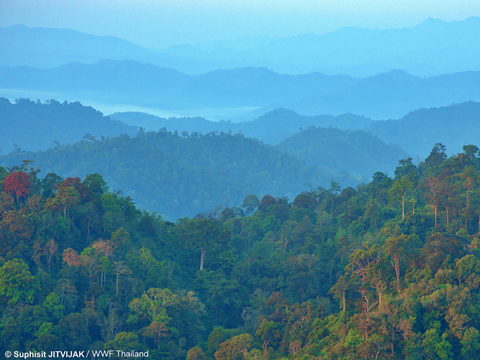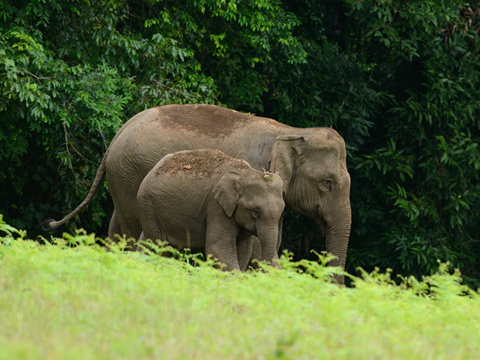
In collaboration with WWF Switzerland and WWF Thailand, SIG has launched a project to protect forest landscapes in Thailand, aligning with its commitment to create, restore, protect, or improve the management of 650,000 hectares of forest by 2030.
The initiative aims to enhance forest management and connectivity in the Dawna Tenasserim, Lower Songkhram, and Dong Phayayen landscapes, a total of 60,000 hectares of forests. This is the company’s third forest landscape project as part of WWF’s Forests Forward programme following projects in Mexico and Malaysia.
Thailand’s forests are part of the Indo-Burma biodiversity hotspot, home to many species including clouded leopards, tigers, Asian elephants, and various orchids, many of which are endangered. Deforestation and habitat fragmentation pose significant threats to this biodiversity.
Forests provide the wood fibres needed to produce paperboard for SIG’s carton packs. The company says that since 2021, it has sourced only FSC certified paperboard, seeking to ensure high standards for responsible forest management practices that support biodiversity and communities.
The new project hopes to secure corridors essential to forest ecosystem connectivity and integrity; strengthen existing conservation lands and support the designation of new protected areas; and fully engage communities in conservation design, implementation, monitoring, and provide alternative livelihood opportunities.
Activities under these objectives include reconnecting forest complexes to create conditions for the return of big cats, improving habitat connectivity to aid the spread of elephants in Khao Yai National Park, restoring riparian forests, designating protected areas, securing land use rights for communities, and promoting agroforestry and ecotourism.

Tim Cronin, WWF Forests Forward Global Lead, comments: “We need private sector leadership to address the climate and biodiversity crises, and forests can play an outsized role. Leadership means more than stopping the damage and actively restoring what’s been lost; it also involves going beyond a company’s own supply chains to support action in places where it’s needed most.”
In August, SIG and WWF announced a project to improve the management of more than 170,000 hectares and pilot the restoration of 25 hectares in Malaysia’s Ulu Muda Forest Complex. The project aims to strengthen the resilience of landscapes in the northern Peninsular Malaysia, ensuring water security, enabling economic growth and contributing to the nation’s food security.
Ahead of INC-5, WWF urged governments to “get serious” about a Global Plastics Treaty by mandating core measures globally, rejecting the removal or watering down of important steps. Among WWF’s requirements were global bans for the “most harmful” plastic products and chemicals, accompanied by lists, specific phaseout timelines and targets.
If you liked this story, you might also enjoy:
The ultimate guide to the Packaging and Packaging Waste Regulation in 2024
How are the top brands progressing on packaging sustainability?
Sustainable Innovation Report 2024: Current trends and future priorities
Everything you need to know about global plastic sustainability regulation














No comments yet